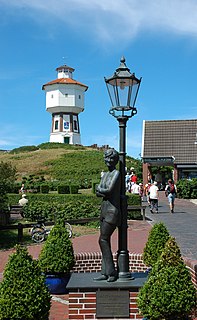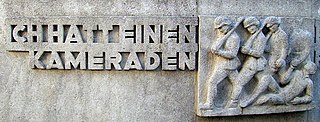Melody
The melody as given in Silcher's publication is as follows: [2]

| "Muss i denn" | |
|---|---|
| Song | |
| Language | Swabian German |
| Published | 1827 |
| Genre | Folk song |
| Songwriter(s) | Friedrich Silcher |
"Muss i denn" (German for "must I, then") is a German folk-style song in the Swabian German dialect that has passed into tradition. The present form dates back to 1827, when it was written and made public by Friedrich Silcher. [1]
The melody and some verses of this song became widely known through Elvis Presley's adaptation "Wooden Heart" in 1960, as well as Joe Dowell's version in 1961, becoming one of the most widely known German songs ever. [2]
"Muss i denn" is about a man – originally a journeyman embarking to his traditional "Wanderjahr" journey – who has to leave the woman he loves and vows to remain faithful until he is back to marry her. It first appeared on page sixteen of Friedrich Silcher's collection of popular songs, Volkslieder, gesammelt und für vier Männerstimmen gesetzt, Opus 8, Nr. 12 (folk songs, collected and set for four male voices). The origin of the song, however, is obscure and the original text was not recorded. Silcher mentioned to Ludwig Uhland that the melody was "an old melody from Württemberg". [1]
The song became famous beginning in the mid-19th century. It soon was especially well-liked among the German military as well as among excursion groups and thus was early on considered a patriotic song. It also became popular among German merchant seamen as a capstan shanty, and has been played as a naval quick march since the days of the Imperial German Navy. An early English translation titled "Must I, then? Must I, then? From the town must I, then?" was made by Henry William Dulcken in 1856. [3]
Some "Muss i denn" versions were widely popularized in the 20th century; those interpreted by German-American actress Marlene Dietrich [4] and by Greek singer Nana Mouskouri deserve mention. [5]
Muss i denn, muss i denn | Must I, then, must I, then |
The melody as given in Silcher's publication is as follows: [2]


"Lili Marleen" is a German love song that became popular during World War II throughout Europe and the Mediterranean among both Axis and Allied troops. Written in 1915 as a poem, the song was published in 1937 and was first recorded by Lale Andersen in 1939 as "Das Mädchen unter der Laterne".

Ioanna "Nana" Mouskouri is a Greek singer. Over the span of her career, she has released over 200 albums in at least twelve languages, including Greek, French, English, German, Dutch, Italian, Portuguese, Spanish, Hebrew, Welsh, Mandarin Chinese and Corsican.

"O Tannenbaum" is a German Christmas song. Based on a traditional folk song which was unrelated to Christmas, it became associated with the traditional Christmas tree by the middle of the 19th century and sung as a Christmas carol.

The Hochburg is a castle ruin situated between the city of Emmendingen and the village of Sexau in the region of Baden, located in the southwest of Germany. It was presumably built in the 11th century and was originally known as castle Hachberg. The line of nobles known as the Margraves of Baden-Hachberg most likely derive their name from this castle and before it was razed by the French it was the second largest fortification in Baden.

"Kisses Sweeter Than Wine" is a popular song, with lyrics written and music adapted in 1950 by Pete Seeger and Lee Hays of The Weavers, and recorded by Jimmie Rodgers. The tune was adapted from Lead Belly's "If It Wasn't for Dicky" (1937), which in turn was adapted from the traditional Irish folk tune "Drimindown / Drumion Dubh". The Weavers first released the song in 1951 as a Decca single, which reached number 19 on the Billboard chart and number 20 on the Cashbox chart in 1951.
Graben-Neudorf is a town in Northern Karlsruhe Country in Baden-Württemberg, Germany. It was created when the two communities of Graben and Neudorf were united on January 1, 1972. With this union Neudorf was transferred from the district of Bruchsal to the district of Karlsruhe.

"Wooden Heart" is a song recorded by Elvis Presley and featured in the 1960 Elvis Presley film G.I. Blues. The song was a hit single for Presley in the UK Singles Chart, reaching No. 1 for six weeks in March and April 1961.

Philipp Friedrich Silcher, was a German composer, mainly known for his lieder (songs), and an important Volkslied collector.

"Der gute Kamerad", also known by its incipit as "Ich hatt' einen Kameraden" is a traditional lament of the German armed forces. The text was written by German poet Ludwig Uhland in 1809. Its immediate inspiration was the deployment of Badener troops against the Tyrolean Rebellion. In 1825, the composer Friedrich Silcher set it to music, based on the tune of a Swiss folk song.

Lena Valaitis is a Lithuanian–German schlager singer who had her greatest success during the 1970s and 1980s. She finished second at the 1981 Eurovision Song Contest.

Karl Friedrich Nebenius was a Baden minister and author of their 1818 constitution.

Offenburg station is a railway station in Baden-Württemberg and has seven tracks on four platforms. Offenburg used to be a railway town and the station was of major economic importance to it. In recent years the maintenance facilities and much of the rail freight yards have been closed. The station is very centrally located within the city and is easily accessible by 18 different bus routes from the central bus station, 50 metres from the railway station.

The State Academy of Fine Arts Karlsruhe is an art school in Karlsruhe, Baden-Württemberg, Germany.

"So nimm denn meine Hände" is a Christian hymn often sung at funerals. The text by Julie Hausmann was first printed in 1862. The melody by Friedrich Silcher appeared already in 1843 with a different text. The song is well-known beyond churchgoers. It was translated into English as "Take Thou my hand, o Father", and into many other languages.

"Kein schöner Land in dieser Zeit" is a popular Volkslied in German. It goes back to a song by Anton Wilhelm von Zuccalmaglio, first published in 1840 in a folk song collection. It gained popularity in the 1910s in the Wandervogel movement, and is now part of most song books in German. It has been set to choral music and modern songs. The beginning of the first line has been used as the title of books, a play and television series.

Friedrich August Walchner was a German geologist, chemist and mineralogist.

The ceremonial Landesvater is a German college custom developed in the 18th century, where student caps are pierced with the blade of a sword, during the recital of a particular song. The song that accompanies this event is also called 'Landesvater'. The word Landesvater is also used as a name for the prime ministers of the individual German states, or Länder.

Marlene Dietrich Overseas is the first Marlene Dietrich album. Orchestra conducted by Jimmy Carroll. Issued on 10" LP by Columbia Records under the catalogue number LP GL105. All the vocals are in German translated by Lothar Metzl. Reissued on 12" LP by Columbia as Lili Marlene with the addition of the following tracks: "Das Hobellied", "Du Liegst Mir im Herzen", "Muss i denn" and "Du Hast die Seele Mein". The eight songs were re-released in CD in a compilation album called "Art Deco - The Cosmopolitan Marlene Dietrich".

Friedrich von Weech was a German historian and archivist.
The Baden Army was the military organisation of the German state Baden until 1871. The origins of the army were a combination of units that the Baden margraviates of Baden-Durlach and Baden-Baden had set up in the Baroque era, and the standing army of the Swabian Circle, to which both territories had to contribute troops. The reunification of the two small states to form the Margraviate of Baden in 1771 and its subsequent enlargement and elevation by Napoleon to become the Grand Duchy of Baden in 1806 created both the opportunity and obligation to maintain a larger army, which Napoleon used in his campaigns against Austria, Prussia and Spain and, above all, Russia. After the end of Napoleon's rule, the Grand Duchy of Baden contributed a division to the German Federal Army. In 1848, Baden troops helped to suppress the Hecker uprising, but a year later a large number sided with the Baden revolutionaries. After the violent suppression of the revolution by Prussian and Württemberg troops, the army was re-established and fought in the Austro-Prussian War of 1866 on the side of Austria and the southern German states, as well as in the Franco-Prussian War of 1870 on the German side. When Baden joined the German Reich in 1870/71, the Grand Duchy gave up its military sovereignty and the Baden troops became part of the XIV Army Corps of the Imperial German Army.